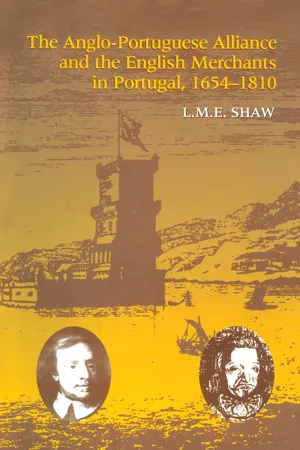History
Navigation Act
The Navigation Acts were a series of laws passed by the British Parliament in the 17th and 18th centuries to regulate trade and commerce within the British Empire. These acts aimed to restrict colonial trade to benefit the British economy by requiring that certain goods be transported only on British ships and sold only in British markets. The Navigation Acts were a significant factor in the economic and political tensions that led to the American Revolution.
Written by Perlego with AI-assistance
Related key terms
3 Key excerpts on "Navigation Act"
- eBook - ePub
- Jerome R Reich(Author)
- 2016(Publication Date)
- Routledge(Publisher)
9 Seventeenth-Century Revolts and Eighteenth-Century StabilizationThe English colonies in America began to show signs of maturity roughly during the last quarter of the seventeenth century. This process was accompanied by a series of revolts, most of which were precipitated by the Glorious Revolution in England beginning in 1688. During the following half century, the colonies enjoyed relative political stability, which encouraged the development of a common “American” culture. This chapter deals with these events and developments that will facilitate an understanding of later chapters of this volume.The Effects of the Navigation Acts
One of the leading causes of colonial discontent was the Navigation Acts. From the English point of view, the Navigation Acts were an unqualified success; however, colonial reactions to them varied according to place and time. New England’s shipbuilding industry benefited from the monopoly granted British ships. Furthermore, none of its products was on the enumerated list. However, New England merchants resented the fact that some of their cargoes could be sold only in England and that they were not allowed to purchase goods directly from the nations of Europe. They were most vociferous against the Plantation Duty Act of 1673, which required that duties on enumerated articles being carried from one colonial port to another be paid in advance. This made it theoretically impossible, for example, to ship tobacco from Virginia to Boston and then to France without paying any customs duties. However, for over a century New England sea captains continued to evade this as well as other regulations of the Navigation Acts.In Virginia the Navigation Acts were at first viewed as a disaster. Even though the acts prohibited the importation of foreign tobacco into England (and even restrained the growing of tobacco in England), tobacco prices fell sharply during the 1670s. Overproduction was probably the main cause of this drop in tobacco prices, but the Virginia planters chose to blame it on the Navigation Acts, particularly the Plantations Duty Act. Virginians also resented the necessity of shipping their tobacco in English ships. Dutch vessels charged lower rates and in general provided better service. Finally, Virginians found themselves paying higher prices for the goods that they imported from Europe because of the added freight charges and extra duties levied on the goods as they were transshipped through England. - Steven Sarson(Author)
- 2020(Publication Date)
- Routledge(Publisher)
6Three years after, by the act of the 15th of the same reign, further regulations and restrictions were made, and every person or persons importing goods into the colonies obliged to deliver to the Governor of such colony, or to such person or officer as shall be by him thereunto authorized or appointed, a true inventory of all such goods, &c.7 At this time, and until ten years after, no duties were laid, by act of parliament, upon any commodities in the plantations, and of consequence no custom-houses had been / erected, or collectors or other custom-house officers appointed or thought of in the colonies, but the whole care and inspection of trade remained with the Governor, or the person be appointed Naval-Officer. – Afterwards, by the act of the 25th of the same reign, chap. 7. sect. 3. duties being laid on sugars and sundry other articles, to be paid in the plantations, when carried from one plantation to another, the several duties so imposed were to be levied and paid to such collector or other officer, in said plantations, as should thereafter be appointed by the commissioners of the customs in England; who did accordingly appoint collectors, and such other officers as occasion required, for that purpose, who ever since their appointment, it is well known, have had the chief care and inspection of the trade.8- L.M.E. Shaw(Author)
- 2017(Publication Date)
- Routledge(Publisher)
9In England merchant shipping was always looked on as a means of reinforcing the navy and avoiding balance of payments problems on freight charges due to foreigners. Since the reign of Richard II in the fourteenth century, English merchants had by law been obliged to freight English ships if they were available, in preference to foreign vessels. In 1626 it was enacted that no ship of over fifty tons capable of carrying guns could sail without the owners giving security in the High Court of the Admiralty that the ship would not be sold abroad. The 1651 Navigation Act had been aimed at overcoming shipping competition from the Dutch and stipulated that goods imported into Britain from other European countries had to be brought directly from the country of production in British ships or ships of the country of origin or first shipment. All goods from outside Europe had to be brought in English ships. That act lapsed with the Restoration in 1660 but a new and better drafted act replaced it. Foreign ships could export English goods to any place outside Europe except to the English colonies. Imports from foreign countries in Europe could only be shipped in vessels of the country of origin or in English ships. Goods arriving in foreign vessels paid a higher import duty than goods arriving in British ships. In the eighteenth century, exports of grain were stimulated by export bounties of five shillings a quarter for wheat and smaller amounts for other grains provided that the cereals were exported in British ships.10 It was the Navigation Acts which caused Dom Luís da Cunha, the Portuguese envoy in London (1696–1712) and Pombal to complain that Britain was not observing Article 15 of the Tripartite Defensive Treaty of 16 May 1703 between Great Britain, the United Provinces and Portugal, which stated that the Portuguese should enjoy in Great Britain and the United Provinces the same personal privileges and freedom of trade as the people of Great Britain and the United Provinces enjoyed at that time in Portugal.11 In December 1779, the Chevalier Luiz Pinto, the Portuguese envoy in London, demanded that all Portuguese imports into Great Britain should be treated on the same footing as British goods imported on British ships. The pressure for this was because Portugal had, by then, complete control of the Oporto wine industry and wished to control sales of Portuguese wines in Britain. By that time, too, Portugal itself had more merchant shipping, so preferred to use it for her own exports, although not wishing to pay the extra aliens’ duty, which could only be saved by utilizing British shipping. As was seen in Chapter 11 , this problem encouraged the Portuguese to ship the wine to Guernsey in their own ships, from whence it was taken to England in British ships, thus avoiding the aliens’ duty.12


